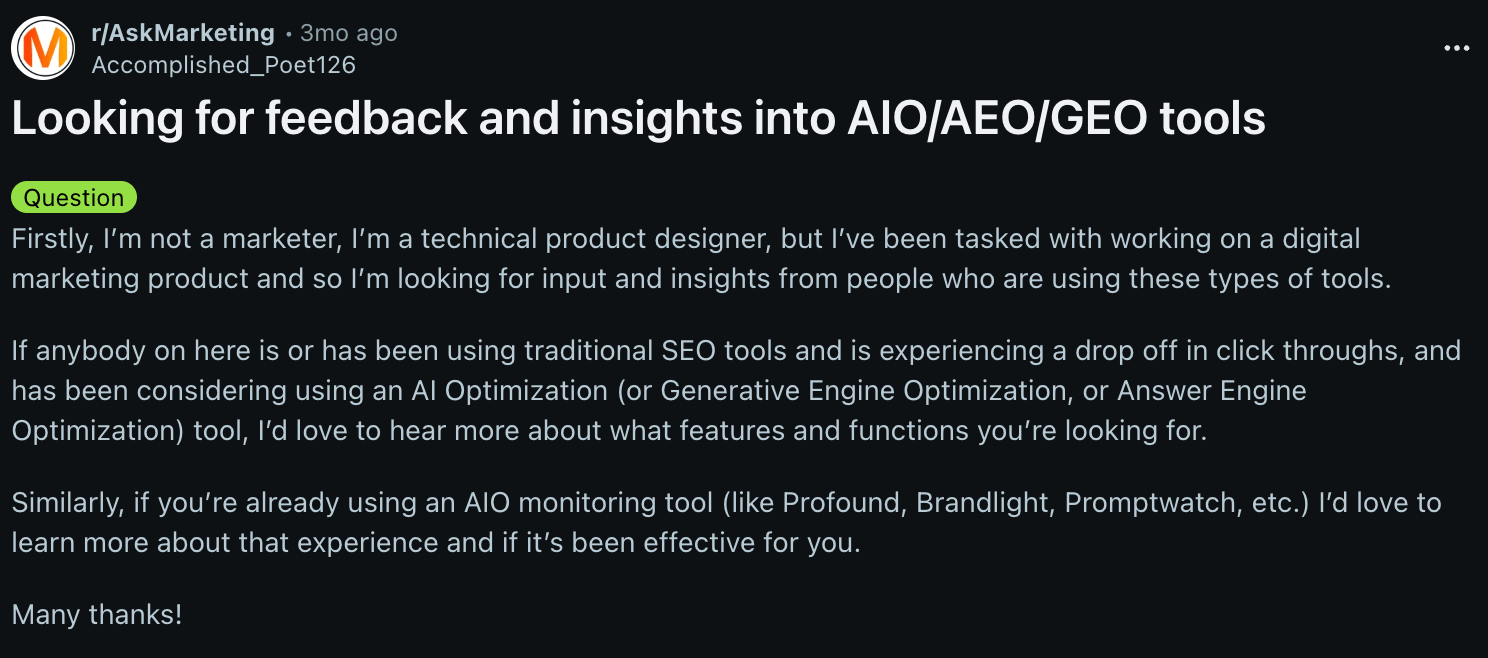AEO
Answer Engine Optimization
Example
Our traffic from Google is down, but ChatGPT keeps quoting our articles
That’s actually a good sign. Your AEO must be working!
Guess it’s time to optimize for bots and people

Related Slang
| SEO | Search engine optimization |
| GEO | Generative Engine Optimization |
| AIO | AI Overview |
| AI | Artificial intelligence |
| CGPT | ChatGPT |
| SERP | Search engine results page |
| DA | Domain authority |
| PA | Page authority |
| GenAI | Generative AI |
| SGE | Search generative experience |
| LLM | Large Language Model |
| To search the Internet |
 Take the pop culture acronym challenge
Take the pop culture acronym challenge
AEO is a content strategy focused on making information easier for AI-powered "answer engines," such as ChatGPT, Google AI overviews (AIOs), or Bing Copilot, to understand and present clearly to users. Unlike traditional SEO, which aims to boost rankings in search results, AEO centers on crafting content that conversational AIs will quote, summarize, or explain. The goal isn't just visibility, but usability, ensuring your content becomes the go-to answer (e.g., the "answer boxes" at the top of traditional search engines) when someone asks an AI a question.
Effective AEO strategies are different from previous SEO tactics. Instead of keyword stuffing or obsessing over backlinks, AEO focuses on clarity and structure. It often involves writing in a natural, conversational tone, directly answering common questions, breaking up text into logical sections, and using data markup or FAQs to help AI tools recognize key facts. Since answer engines largely favor trustworthy and well-organized content, AEO also often rewards sites that demonstrate their credibility through clear sourcing and updated information.
Because answer engines are relatively new, AEO continues to shift as technology matures. As AI models learn to detect expertise and tone, content creators may lean more on transparency, context, and conversational phrasing rather than technical optimization.
Who uses AEO?
The term AEO is most often used by digital marketers, SEO professionals, and online publishers who are adapting their strategies for AI-driven search tools. It's also increased among journalists, educators, and businesses that rely on web visibility, as they look for ways to make their content more AI-friendly.